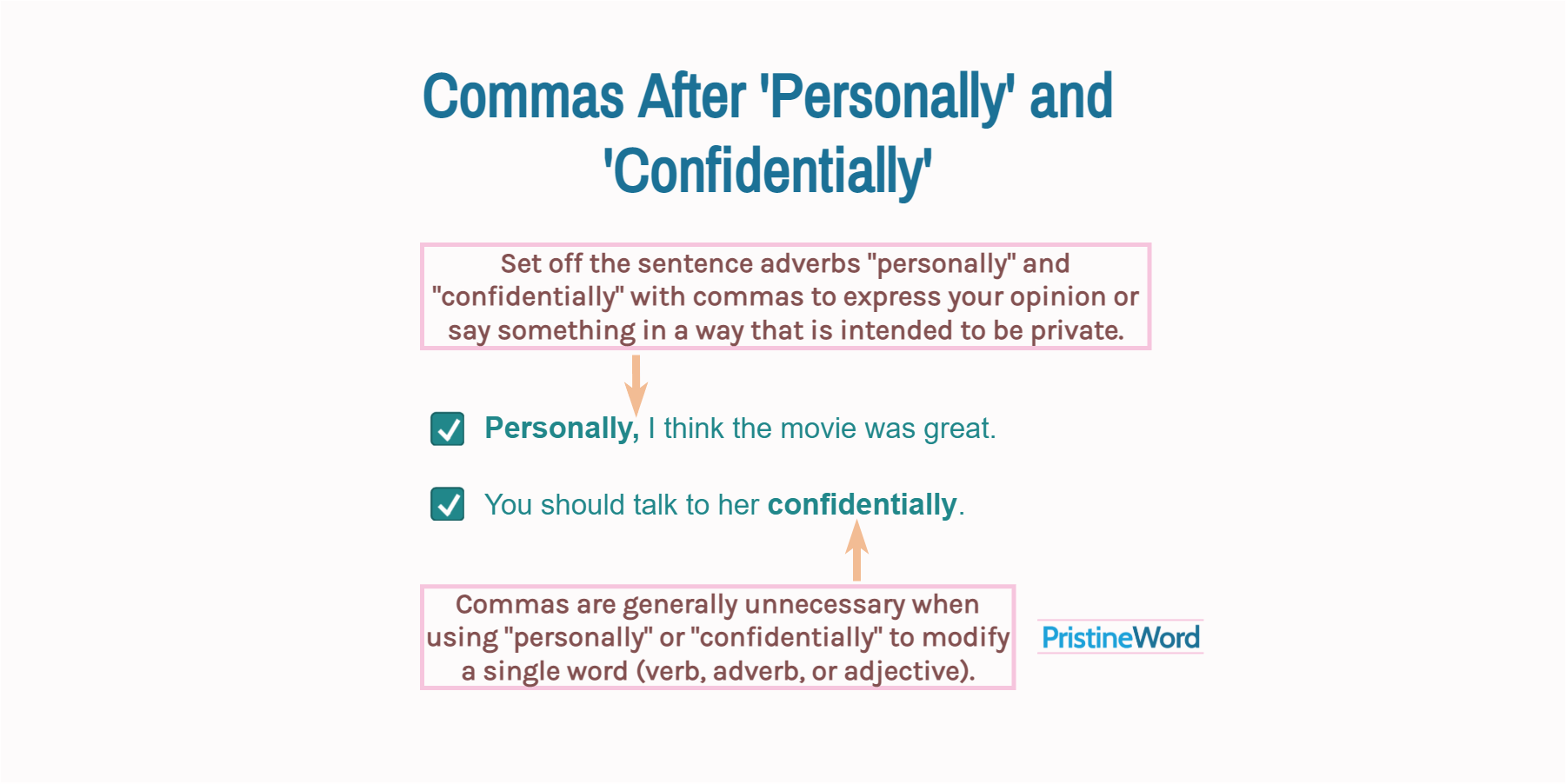Set off the sentence adverbs "personally" and "confidentially" with commas to express your opinion or say something in a way that is intended to be private.
Use commas to set off the sentence adverbs "personally" and "confidentially" to express your opinion or say something in a way that is intended to be private.
Personally, I think the movie was great.
Confidentially, the company is experiencing serious financial problems.
Commas are generally unnecessary when using "personally" or "confidentially" to modify a single word (verb, adverb, or adjective).
I will personally receive the guests with a glass of Spanish wine.
You should talk to her confidentially.
Contents
1. When to Use Commas With 'Personally' or 'Confidentially'
"Personally" can be used as a synonym of "in my opinion". In such a situation, it typically describes a complete sentence and not a single word.
Personally, I think that our statements should be communicated more effectively.
Personally I think that our statements should be communicated more effectively.
Note that in the example above, the adverb "personally" does not describe a particular word. Instead, it is used to introduce the speaker's opinion on the matter.
When using "personally" or "confidentially" at the start of a sentence to describe (modify) a complete sentence, add a comma after it.
Personally, I would rather die to live a mediocre life.
Confidentially, I didn't say the truth because I was afraid I would get charged for it.
In the middle of a sentence, use a comma before and after these words to indicate that the adverb modifies the whole clause or sentence.
My father, personally, thinks that being committed is essential to achieve what you want in life.
I want to say this, confidentially, as nice as possible.
2. When to Avoid Commas With 'Personally' or 'Confidentially'
Instead of describing an entire sentence or clause, the adverbs "personally" and "confidentially" can be used to modify a verb, an adjective, or an adverb.
Personal customer data should be handled confidentially.
In the sentence above, "confidentially" modifies a single word ("handled") and not the sentence as a whole. In such a situation, we do not generally need a comma to separate the adverb from the word it describes.
The president was personally involved in these negotiations.
The president was, personally, involved in these negotiations.
There are exceptions, however, to the convention of not using commas before or after a regular adverb in mid-sentence. For example, you should use commas when interrupting the sentence flow to add a parenthetical phrase.
The CEO of the company, personally involved in these negotiations, rejected the offer.
Notice that the essential part of the sentence above is "The CEO of the company rejected the offer."; thus, the phrase "personally involved in these negotiations" simply provides, as an aside, added or contextual information.

